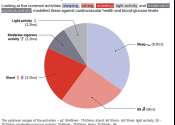How some prostate tumors resist treatment—and how it might be fixed
Hormonal therapies can help control advanced prostate cancer for a time. However, for most men, at some point their prostate cancer eventually stops responding to further hormonal treatment. This stage of the disease is called ...
Mar 18, 2013
0
0






